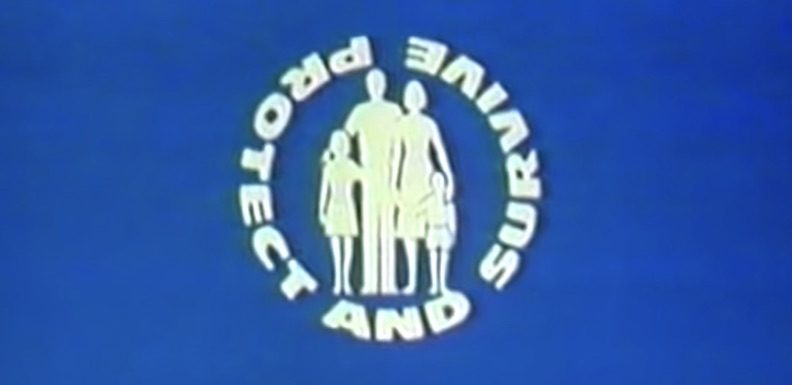
In honor of the latest Kittysneezes video by Jeremiah Aulwurm, available today on the official Kittysneezes Facebook page, which takes a cue from the “Protect and Survive” series of PSAs, I figured we’d take a look at British Public Information Films, the UK’s crazy-dark take on the Public Service Announcement. Though many of these ones were made for children, I can’t really recommend you show them to kids, unless you want to traumatize them.
Folks in the UK are probably already well-aware of most of these films — and please, post your favorites in the comments! But for those of us in the United States, our PSAs are generally genial to laughable. Even when we try for disturbing, we generally hit on hilarious. But Public Information Films are often legitimate horror films. If an American’s been exposed to them at all, it’s likely through the samples from the first Frankie Goes to Hollywood album, Welcome to the Pleasuredome. Frankie Goes to Hollywood sampled from the aforementioned “Protect and Survive” series, about what to do in the event of nuclear war.
https://www.youtube.com/watch?v=hGMdnod8VPI
That said, the “Protect and Survive” series were more directed at adults. Not so for some of my favorite ones, which are directed at children, and were apparently often shown in schools. These Public Information Films, despite being for kids, often rack up a body count that rivals some of the best, goriest horror films — all while being much, much shorter.
“The Spirit of Dark and Lonely Water” is probably the least horrifying of the ones I’m going to feature here. This short, narrated by Donald Pleasence as the titular spirit, gloats as children drown in ponds — but he’s no match for “sensible children.”
While children do die in “Lonely Water,” the camera generally cuts away shortly before their fates. Not so with many of these Public Information Films, though. “The Finishing Line” is so infamous that after a few airings on television, it was pulled. Predating both Battle Royale and The Hunger Games by a few decades, “The Finishing Line” imagines an inter-scholastic Olympics of sorts where all the events involve trying (and failing) to not get hit by trains. Bloodies corpses of children abound in this short — but presumably no one who watched it played around train tracks. Or took the train. Or traveled anywhere.
https://www.youtube.com/watch?v=slJyhOEo-SY
John Mackenzie’s “Apaches” is another favorite of mine. A shorter version of the film is “Hey, Kids! Don’t fuck around on farms!” In it, six children pretend to be Apache warriors (I know, but it was made in 1977) who each discover, in their own way, why you don’t fuck around on farms. One of them even drowns in a massive pool of pig shit! And don’t reveal the twist ending to your friends!
https://www.youtube.com/watch?v=UAQZaUixmpA
“Play Safe” features cute animated birds — how bad could it be? Well, it is a Public Information Film, but it does have the lowest body count of the films so far — only two kids die. And one of them dies pretty brutally from attempting to fetch a frisbee from a power substation. (I also like that the “lowest body count” doesn’t mean “no one dies horribly.”)
https://www.youtube.com/watch?v=d7D-ScnxDV0
On a similar tip is “Shockball,” which is only a minute long, and also features two children dead of electric shock. Seriously, kids, stay away from substations!
Though these films (except for “Shockball”) are from the ’70s, they’re still making horrifying Public Information Films. I found a couple more modern ones, but decided not to share them because they feature actual injuries in the films — a 1992 train safety feature even shows the body of a boy killed by a train in real life. (The copy I found blurred out that shot, but still.) It just goes to show that while these ones with fake deaths are horrifying but kind of fun in a horror-movie way, they’re about real dangers.
So, remember what Charley says — “brbrbrbmeowbrbrbgrawlmeowblrbblrb,” which means “stay away from trains, powerlines, substations and ponds,” okay?
Kittysneezes is supported by readers like you. If you enjoy what you’ve read here, please consider supporting us on Patreon.